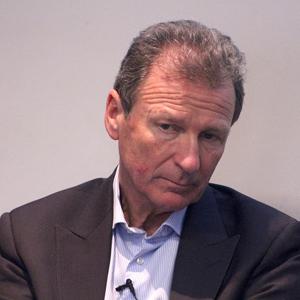Comment
How to confound the cynics: make the next government effective
How to restore faith in our politics.
Matt Ross
Faith in our politics – and our politicians – is at an all-time low. At a recent event, Gus O’Donnell and Patricia Hewitt responded to a new set of reports examining how the next government can deliver on its promises. Matt Ross reports
“The public has very little faith that politicians can run government effectively,” warned Julian McCrae – and as evidence the Institute for Government’s deputy director cited a 2014 poll, in which only 14% of respondents said that politicians prioritise ‘running the government effectively’ and 15% ‘fulfilling the promises they make’.
A few minutes later, the audience learned a little more about the process by which prime ministers choose departmental ministers – providing a vivid illustration of why cynicism runs so high. “I would love prime ministers, when they’re doing their cabinets, to think about departments as running something,” said Gus O’Donnell, former cabinet secretary and head of the civil service. “Then you’d pick a team to run a business.”
Instead, he said, under our system prime minsters “pick all the secretaries of state. Then we pick all the ministers of state. Then we’ve got all the leftovers: ‘Nobody wants this person, but I promised them something so they’ve got to go somewhere…’”
Patricia Hewitt, a former trade and health secretary in the Blair government, added that secretaries of state have only a limited ability to choose their own ministerial teams. “You put your bids in, then strange things happen,” she commented. “In my experience – and this may have been a TB [Tony Blair] thing – you’re allowed to throw one back! You can discard one, but only one. And what you get in replacement – just like a card game – you may or may not think is an improvement.”
“It’s done on a big board, and people keep going back down to the bottom and being pushed back, and eventually everyone ends up somewhere,” added Lord O’Donnell. “Or doesn’t!”
Such practices demonstrate the importance of party management and political issues in deciding appointments – and their supremacy over the interests of effective management and focusing on outcomes. Yet unless politicians and officials build the processes, structures and skills of government around the aims of fulfilling their election pledges and improving value for money, said McCrae, they’ll always struggle to tackle public cynicism about politics and politicians.
McCrae, O’Donnell and Hewitt were speaking at an Institute for Government event held to launch six ‘briefing notes’, published by the Institute to map a course through the early decisions that will face the next government – whatever its nature or composition – as it appoints ministers and special advisers, and gets stuck into core government work such as developing policies, managing ‘quangos’ and interacting with suppliers.
These early decisions can be crucial in deciding a government’s success; and as we’ve learned over the last five years, the tight agreements required to hold together a coalition government can leave politicians unable to escape poor decisions made in a rushed set of negotiations. After the five-day 2010 talks, said McCrae, “there were things people came to regret. Tuition fees, health reforms – many of these things weren’t really thought through properly, and things that were going to be difficult and complicated anyway were made more difficult by not taking the time to set the government up in the right way.”
Whatever policies the government decides to pursue, all are improved by a sharp focus on implementation, a positive attitude to constructive challenge and a flexible approach to delivery, argued McCrae. Just as important is the machine built around the prime minister to develop policies, manage relations with the departments, chase up implementation, produce analysis, pursue the PM’s priorities, and provide secretariats for key central functions. In 2010, our new prime minister – following through on his promises to reduce central control – dismantled much of this machinery, only to regret and reverse his decision a couple of years later. “Keeping on building on and flexing the now quite substantial body of experience that sits at the centre seems to me absolutely critical,” said Hewitt, pointing to the Australian model of a Department of the Prime Minister and Cabinet. “That completely proves the Institute’s point: that you can have a permanent central arrangement that is nonetheless absolutely flexible and responsive to the needs and styles of different prime ministers.”
Gus O’Donnell was equally emphatic. Compared to the teams of officials and special advisers supporting the premiers of, for example, Germany, France and the USA, he said, “we’re trying to do it on a shoestring”. Politicians “all underestimate how much prime ministers have to do in this modern era,” he added, regretting the fact that in 2010 “we were very constrained by what the leader of the opposition had said before we’d ever got to him.” And he had a clear message to leading politicians: “Don’t commit yourself by saying you’re going to reduce the numbers in Number 10, because it’s small enough already.”
Another of McCrae’s key points was to avoid tinkering with the departmental structures of government unless a proper business case has been developed and debated – a message warmly welcomed by the audience, many of whom experienced the upheavals around the creation and subsequent destruction of DIUS and BERR under the Brown government. Lord Sainsbury, a former minister of science and innovation (and chair of the Institute for Government) pointed out that while such changes are carried out “to get more co-ordination by bringing departments together, they invariably open up another co-ordination problem somewhere else.”
Moving on to what he called the “persistent weaknesses in Whitehall”, McCrae pointed to the “emerging consensus that all these issues are cross-departmental in nature, and the solutions are also cross-departmental.” This means building on the government professions and central oversight functions such as the Major Projects Authority, he argued – and this in turn “requires sustained political drive. It’s vitally important that any agenda to improve Whitehall is connected to the political agenda of the government of the day, otherwise it won’t get anywhere.” From the audience’s response to a mention of Francis Maude, it was clear that the Cabinet Office minister is not universally admired – but after Labour rotated 12 ministers through the post in 13 years, McCrae argued, his five-year tenure has been important in keeping up the focus on reform.
In the 75-minute event, there was little time to discuss some of the papers – particularly those on arm’s-length bodies and outsourcing – but Hewitt did pick up on the Institute’s recommendation that ministers benefit from more training. “I am very, very strongly in favour of ministerial induction, development, coaching and so on,” she commented. “In both my departments, I introduced 360-degree evaluations for my teams and I. Some ministers said, and may even have believed, that it was useful. Others made it very clear that it was an appalling idea, and that I’d been tainted by the stint I’d done in the private sector.” Even before she received the results, said Hewitt, “ministers’ reactions to 360-coaching provided some insight into their potential and capabilities.”
Such coaching would, Hewitt believes, help ministers to manipulate the government machine in pursuit of their policy goals. And here, O’Donnell chipped in to urge ministers to prioritise getting results: it’s the outcome that matters, he noted, but politicians are often more interested in deploying the policies that they’ve nurtured through the long years of opposition.
Interestingly, said O’Donnell, it’s “coalitions that come up with a programme for government. Single parties, quite often, don’t come up with one – so when you ask at the start what they’re attempting to deliver, quite often you don’t get an answer.” And coalition can have other advantages. “Remember, single party governments are associated with high turnover of secretaries of state,” he continued. “And imagine if the Conservatives had a clear majority and Andrew Lansley came in as secretary of state [for health]: would there be more challenge to him, or less? I know the answer.”
So coalition government can help address some of the problems in British government, even while it raises new challenges; but as we embark on the election campaign, nobody can be confident what shape our next government will take. Most models suggest there’s a 20% chance of a parliamentary majority, pointed out O’Donnell. The chances are, though, that the result will look perverse. “I predict that people will look at this next election outcome and say: ‘What kind of crazy system is this?’,” said the former cabinet secretary. “There are going to be a lot of people who vote UKIP and Green, and get virtually no seats. The third party is almost certainly going to be the SNP, which will get about 4% of the vote. So the relationship between votes and seats is going to be at its most extreme. I think that’s going to create some constitutional issues.”
Such a result would do little to restore the population’s faith in our system of government – and in the people elected under it. But whoever benefits most from our electoral system can at least give themselves the best possible chance of tackling popular cynicism by delivering on their promises – and in that, as O’Donnell and Hewitt noted, the Institute for Government’s new papers could be a big help. “I do hope they’ll all be sitting in the first-day pack that will await new ministers,” said Hewitt.
- Keywords
- Cabinet Civil service reform General election
- Publisher
- Institute for Government

